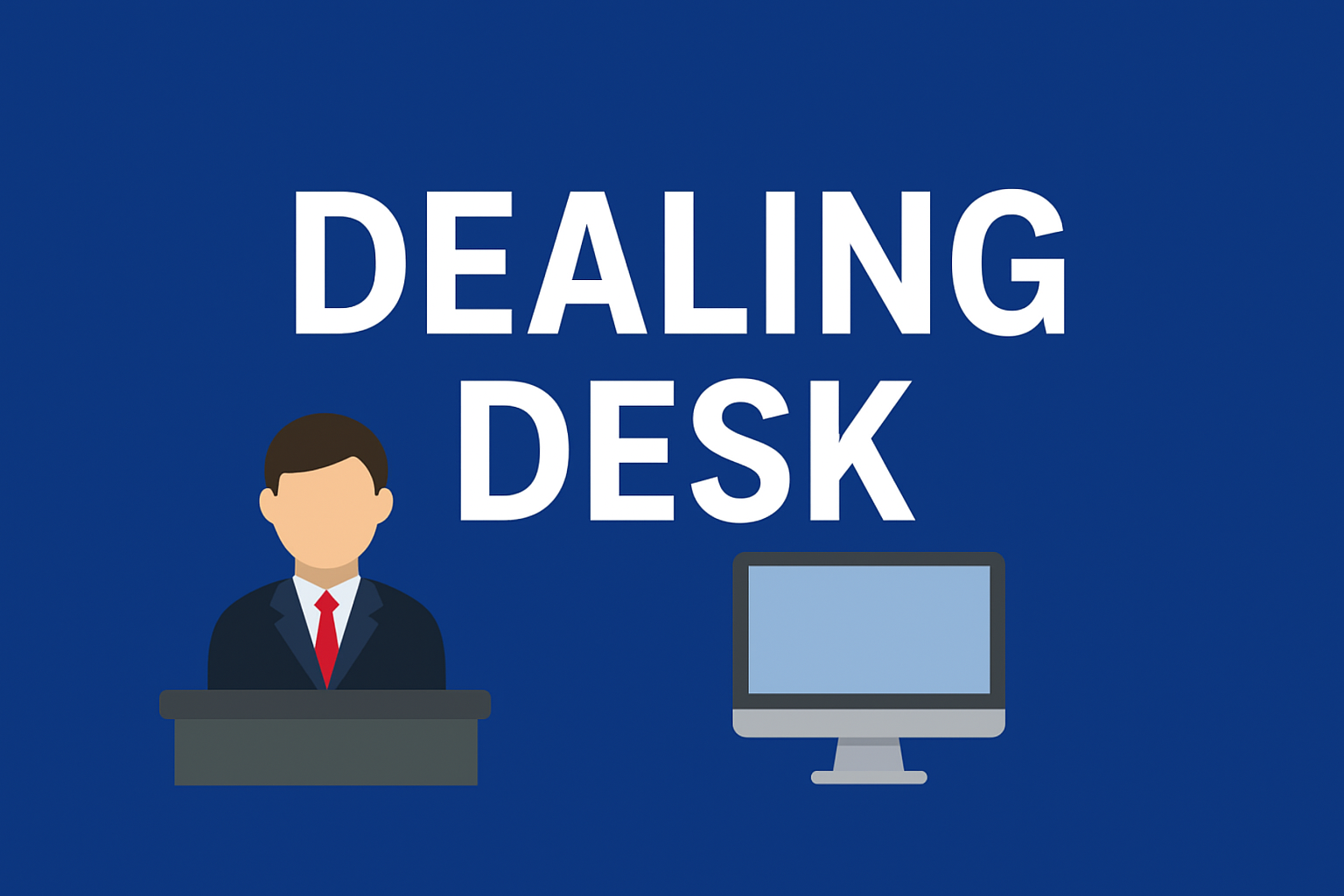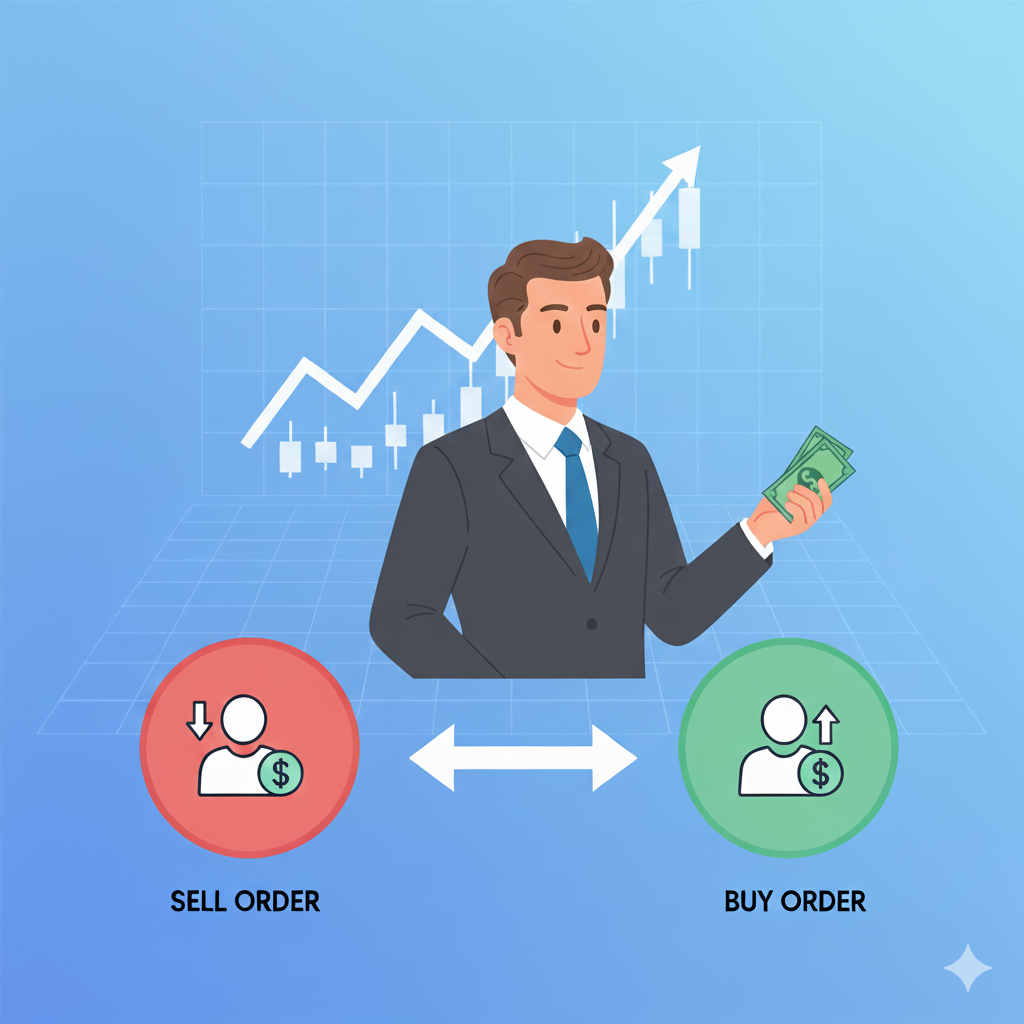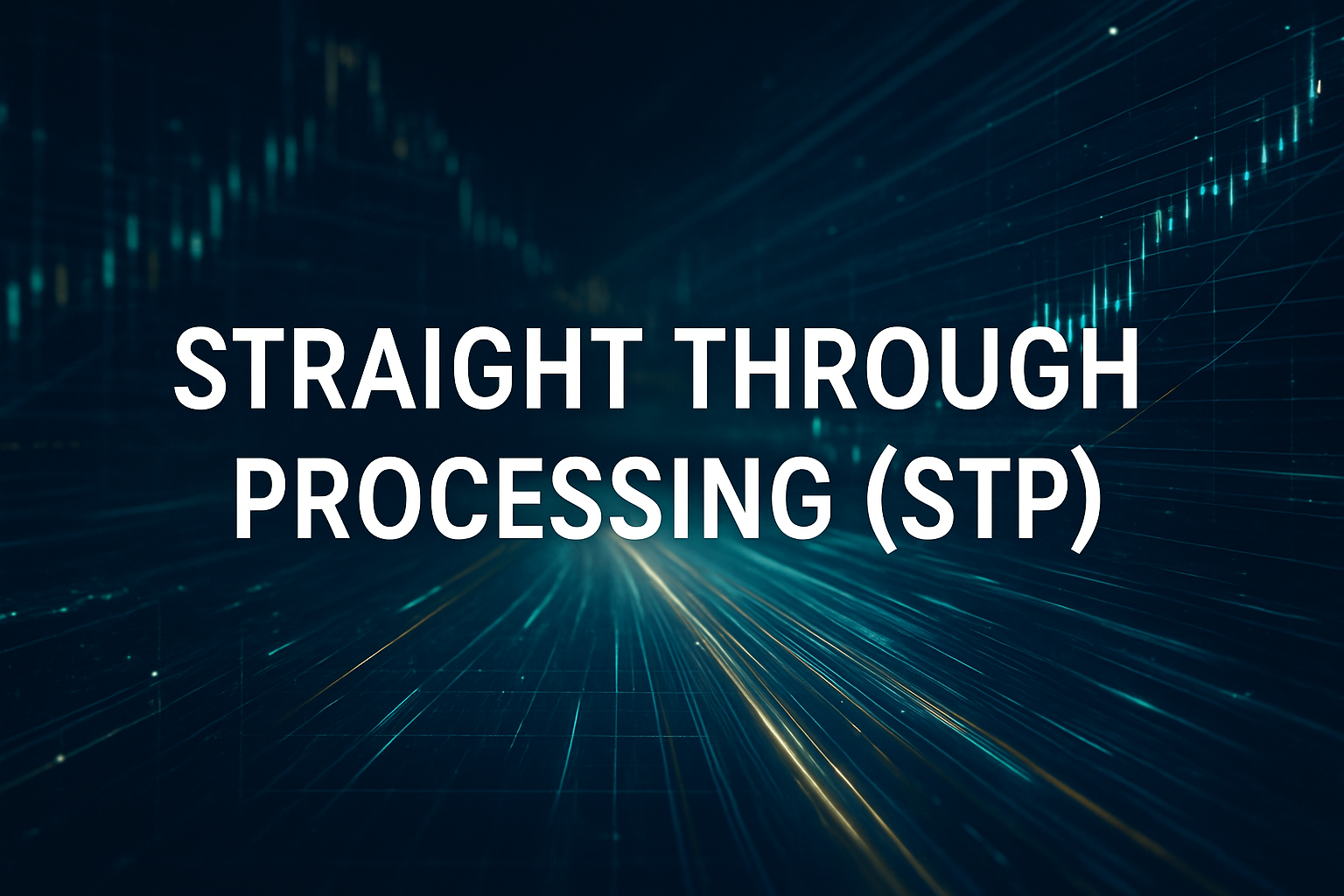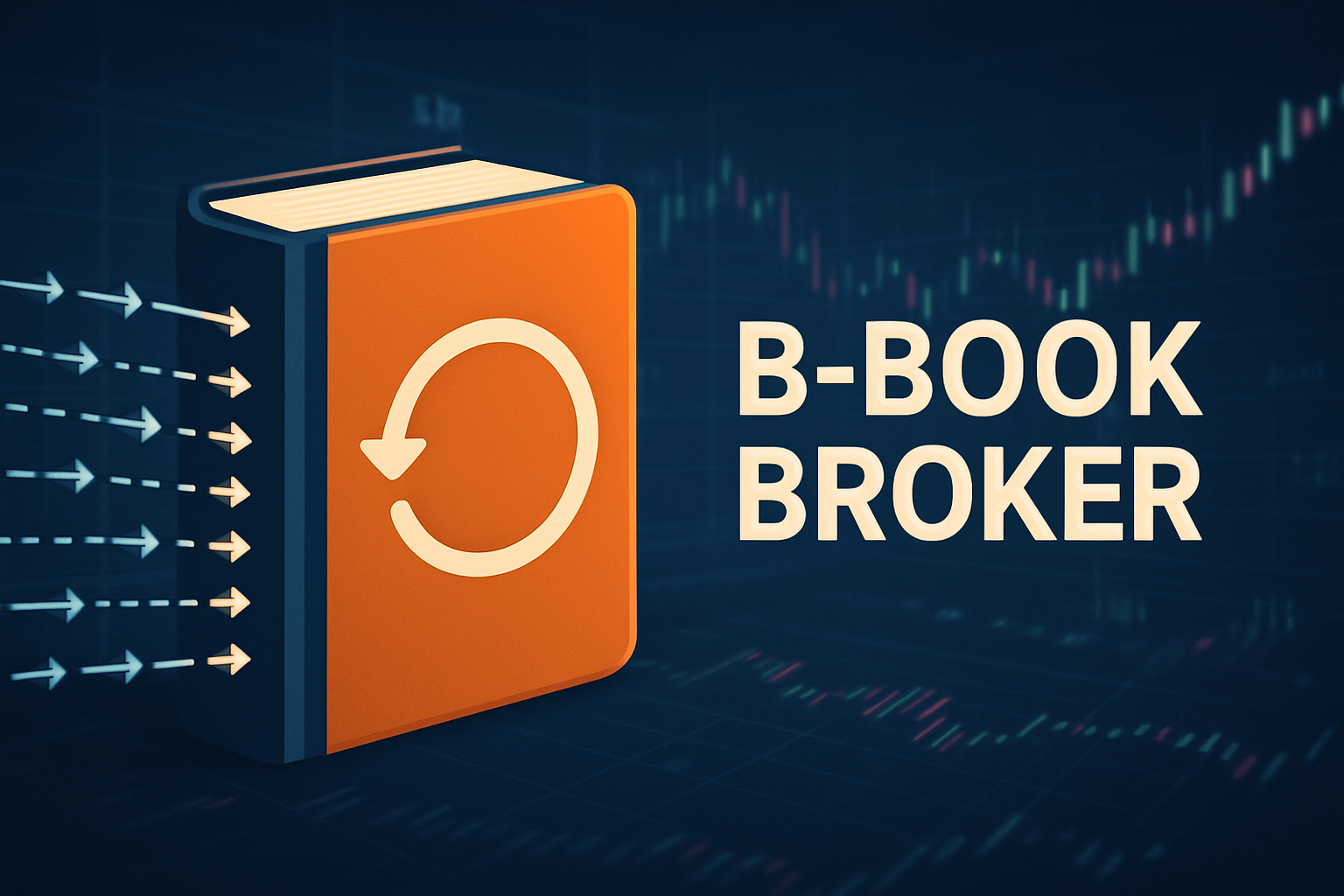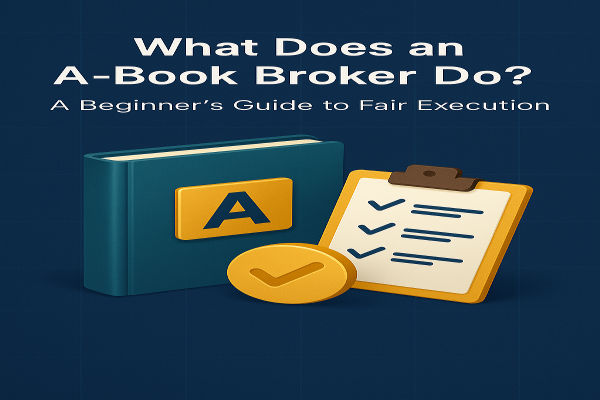Dealing desks act as the “engine room” of many brokers, managing client trades internally to ensure smooth execution and stable pricing.
Introduction
A dealing desk is a system used by brokers to manage and execute client trades in-house rather than sending them directly to the external market.

These brokers are often referred to as market makers because they create their own market for clients. The dealing desk ensures traders can open and close positions instantly, even when external liquidity is thin.
Definition
A dealing desk broker quotes both buy (bid) and sell (ask) prices for assets and takes the opposite side of a client’s trade.
When a trader buys, the broker sells, and vice versa.
The broker profits from the spread between these prices or from client losses, depending on how the position moves.
This setup is also known as the B-Book model, since trades are held internally rather than passed to liquidity providers.
Example
Suppose a broker operates a dealing desk and quotes EUR/USD at 1.0750 / 1.0752 (bid/ask).
When a trader buys one lot at 1.0752, the broker sells it internally.
If the price later drops to 1.0748 and the trader closes the position, the broker earns the difference, which is known as the spread.
If the price rises, then the trader profits and the broker may offset its loss through hedging in the open market.
Relation to Market Makers
Dealing desks are essentially how market makers operate.
They provide liquidity by being the counterparty to trades and maintaining stable pricing, even in volatile markets.
While this can create a potential conflict of interest, regulated dealing desk brokers must quote fair prices and ensure transparent execution policies.
Related Terms
Market Maker: A broker or institution providing liquidity by taking the opposite side of trades.
B-Book Broker: A broker that executes trades internally rather than passing them to the external market.
Spread: The difference between bid and ask prices, representing the broker’s profit.
A-Book Broker: A broker that sends trades directly to liquidity providers without internal dealing.
Frequently Asked Questions (FAQ)
1. Is a dealing desk the same as a market maker?
Yes. Dealing desk brokers create their own market by taking the opposite side of client trades, thus also known as Market Maker.
2. Do dealing desks manipulate prices?
Regulated dealing desks must quote fair prices, but spreads can widen during volatile conditions.
3. Why do some brokers use dealing desks?
It ensures faster execution and liquidity, especially when external market depth is low.
Summary
A dealing desk is a broker’s internal system that manages and executes client trades by acting as the counterparty. This model guarantees liquidity and fast order execution, though it can involve conflicts of interest.
For beginners, understanding dealing desks helps clarify how some brokers can offer instant trades and fixed spreads even when markets are volatile.
Disclaimer: This material is for general information purposes only and is not intended as (and should not be considered to be) financial, investment or other advice on which reliance should be placed. No opinion given in the material constitutes a recommendation by EBC or the author that any particular investment, security, transaction or investment strategy is suitable for any specific person.
